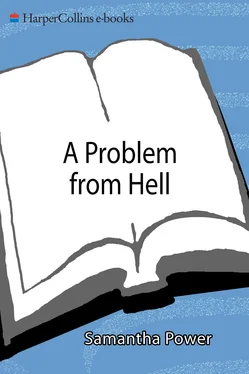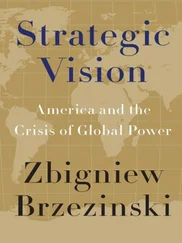Talaat, who was sentenced to death, was living peacefully as a private citizen in Germany, which rejected Allied demands for extradition. Conscious of his place in history, Talaat had begun writing his memoirs. In them he downplayed the scale of the violence and argued that any abuses (referred to mainly in the passive voice) were fairly typical if “regrettable” features of war, carried out by “uncontrolled elements.” “I confess,” he wrote, “that the deportation was not carried out lawfully everywhere…Some of the officials abused their authority, and in many places people took the preventive measures into their own hands and innocent people were molested.”Acknowledging it was the government’s duty to prevent and punish “these abuses and atrocities,” he explained that doing so would have aroused great popular “discontent,” and Turkey could not afford to be divided during war. “We did all we could,” he claimed, “but we preferred to postpone the solution of our internal difficulties until after the defeat of our external enemies.” Although other countries at war also enacted harsh “preventive measures,” he wrote, “the regrettable results were passed over in silence,”whereas “the echo of our acts was heard the world over, because everybody’s eyes were upon us.” Even as Talaat attempted to burnish his image, he could not help but blame the Armenians for their own fate. “I admit that we deported many Armenians from our eastern provinces,” he wrote, but “the responsibility for these acts falls first of all upon the deported people themselves.” 47
After a promising start, enthusiasm for trying Talaat and his henchmen faded and politics quickly intervened. With the Turkish nationalist leader Mustafa Kemal (later Atatürk) rapidly gaining popularity at home, the Ottoman regime began to fear a backlash if it was seen to be succumbing to British designs. In addition, the execution of Kemal Bey had made him a martyr to nationalists around the empire. To avoid further unrest, the Turkish authorities began releasing low-level suspects. The British had grown frustrated by the incompetence and politicization of what they called the “farcical”Turkish judicial system. Fearing none of the suspects in Turkish custody would ever be tried, the British occupation forces shipped many of the arrested war crimes suspects from Turkey to Malta and Mudros, a port on the Aegean island of Lemnos, for eventual international trials. But support for this, too, evaporated. By 1920 the condemnations and promises of 1915 were five years old. Kemal, who was rapidly consolidating his control over Turkey, had denounced as treasonous the 1920 Treaty of Sèvres, which committed the Ottomans to surrender war crimes suspects to an international tribunal. The British clung for a time to the idea that they might at least prosecute the eight Turks in custody who had committed crimes against Britons. But Winston Churchill gave up even this hope in 1920 when Kemal seized twenty-nine British soldiers whose immediate fates Britain privileged above all else. 48
In November 1921 Kemal put an end to the promise of an international tribunal by negotiating a prisoner swap. The incarcerated Britons were traded for all the Turkish suspects in British custody. In 1923 the European powers replaced the Treaty of Sèvres with the Treaty of Lausanne, which dropped all mention of prosecution. Former British prime minister David Lloyd George called the treaty an “abject, cowardly, and infamous surrender.” 49
Chapter 2 “A Crime Without a Name”
Soghomon Tehlirian, the young Armenian survivor, knew little of international treaties or geopolitics. He knew only that his life had been empty since the war, that Talaat was responsible, and that the former minister of the interior would never stand trial. Since the massacre of his family and injury to his head, Tehlirian had been unable to sleep and had been overcome by frequent epileptic seizures. In 1920 he had found a cause, enlisting in Operation Nemesis, a Boston-based Armenian plot to assassinate the Turkish leaders involved in targeting the Armenians. He was assigned to murder Talaat, a crime that earned him everlasting glory in the Armenian community and brief global notoriety.
While Tehlirian awaited trial in Berlin, Raphael Lemkin, a twenty-one-year-old Polish Jew studying linguistics at the University of Lvov, came upon a short news item on Talaat’s assassination in the local paper. Lemkin was intrigued and brought the case to the attention of one of his professors. Lemkin asked why the Armenians did not have Talaat arrested for the massacre. The professor said there was no law under which he could be arrested. “Consider the case of a farmer who owns a flock of chickens,” he said. “He kills them and this is his business. If you interfere, you are trespassing.”
“It is a crime for Tehlirian to kill a man, but it is not a crime for his oppressor to kill more than a million men?” Lemkin asked. “This is most inconsistent.” 1
Lemkin was appalled that the banner of “state sovereignty” could shield men who tried to wipe out an entire minority. “Sovereignty,” Lemkin argued to the professor, “implies conducting an independent foreign and internal policy, building of schools, construction of roads…all types of activity directed towards the welfare of people. Sovereignty cannot be conceived as the right to kill millions of innocent people.” 2But it was states, and particularly strong states, that made the rules.
Lemkin read about the abortive British effort to try the Turkish perpetrators and saw that states would rarely pursue justice out of a commitment to justice alone. They would do so only if they came under political pressure, if the trials served strategic interests, or if the crimes affected their citizens.
Lemkin was torn about how to judge Tehlirian’s act. On the one hand, Lemkin credited the Armenian with upholding the “moral order of mankind” and drawing the world’s attention to the Turkish slaughter. Tehlirian’s case had quickly turned into an informal trial of the deceased Talaat for his crimes against the Armenians; the witnesses and written evidence introduced in Tehlirian’s defense brought the Ottoman horrors to their fullest light to date. The New York Times wrote that the documents introduced in the trial “established once and for all the fact that the purpose of the Turkish authorities was not deportation but annihilation.” 3But Lemkin was uncomfortable that Tehlirian, who had been acquitted on the grounds of what today would be called “temporary insanity,” had acted as the “self-appointed legal officer for the conscience of mankind.” 4Passion, he knew,would often make a travesty of justice. Impunity for mass murderers like Talaat had to end; retribution had to be legalized.
A decade later, in 1933, Lemkin, then a lawyer, made plans to speak before an international criminal law conference in Madrid before a distinguished gathering of elder colleagues. 5Lemkin drafted a paper that drew attention both to Hitler’s ascent and to the Ottoman slaughter of the Armenians, a crime that most Europeans either had ignored or had filed away as an “Eastern” phenomenon. If it happened once, the young lawyer urged, it would happen again. If it happened there, he argued, it could happen here. Lemkin offered up a radical proposal. If the international community ever hoped to prevent mass slaughter of the kind the Armenians had suffered, he insisted, the world’s states would have to unite in a campaign to ban the practice. With that end in mind,Lemkin had prepared a law that would prohibit the destruction of nations, races, and religious groups. The law hinged on what he called “universal repression,” a precursor to what today is called “universal jurisdiction”:The instigators and perpetrators of these acts should be punished wherever they were caught, regardless of where the crime was committed, or the criminals’ nationality or official status. 6The attempt to wipe out national, ethnic, or religious groups like the Armenians would become an international crime that could be punished anywhere, like slavery and piracy. The threat of punishment, Lemkin argued, would yield a change in practice.
Читать дальше












